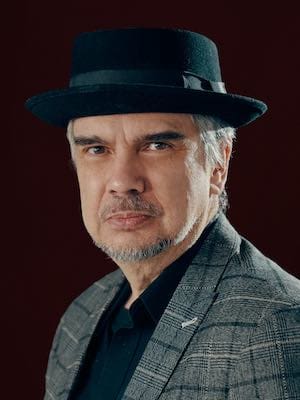In the days just after the war of independence, Liborio (the personification of Cuba in the same way Uncle Sam personifies the United States) was alone in the cane field, still cutting as others ate their meager lunches.
He chopped through a row of cane to discover God, sitting in an expensive white suit on a little stool, the type colonos (sugar planters) used when they stopped to survey their property.
“Buenos dias, Liborio,” said God. “I have come to see how my cubanos are doing.”
Liborio stood with his cloths soaked with sweat, his hands cracked and bleeding, his feet bare and filthy. He stuck his machete into the ground, spit out the piece of cane he had been chewing on and thought for a long time about what he should say to God.
“First of all, Señor,” he said, “we are no longer subjects of the King of Spain. We are free men.”
“I can see that,” said God, looking at Liborio from head to foot. “The difference is astounding.”
“But I wonder something,” Liborio continued, “why life is still so hard.”
God smiled at him. “My son, nothing on this earth can be perfect, or nobody would want to go to heaven. Sugar is sweet, but man has to labor to take it from the ground. The ocean is wide and bountiful, but it has sudden storms and dangerous currents to pull you under and drown you. This Cuba is so beautiful, the pearl of all my creation, so I had to make the pests, the mosquitoes, the sea urchin, the thorn of the marabú, all so life here would be less than paradise. Nothing can be perfect in this world.”
Liborio pondered this, trying to fathom the wisdom of God’s ways. “But nothing can mar the beauty of freedom,” he said finally. “Surely freedom is perfect?”
God smiled again, “For that,” he says, “I created los yanquis (the Americans).”
— Adapted from John Sayles, “Los Gusanos”
Among us Cubans, there is a saying: “Poor Cuba – so far from God, so close to the United States.” Throughout the history of the U.S., a covetous eye has always gazed upon our island, as first voiced by men like John Quincy Adams who saw Cuba eventually gravitating toward the Union once severed from the “unnatural” connection to Spain, like an apple falling to the ground, or Thomas Jefferson who advocated its addition to the states.
Maybe this history of not being able to possess what it could not have is responsible for a 50-year embargo that has failed to advance any of the goals and hopes the U.S. has had for the island.
Cuba is the only country in the world to which the U.S. bans its citizens from travel. American blood was spilled in Vietnam, yet they can travel there. China is a communist country, yet they can travel there. North Korea and Iran have been named by the previous administration as part of the axis of evil, yet they can travel there. We must therefore ask: Why Cuba? Why does our government forbid us from visiting this one place on earth?
Some argue that we are punishing Fidel Castro for his human rights violations. No one questions that dictatorships of the left are just as damning to the people as the previous U.S.-sponsored dictatorships of the right. But as one who has visited the land that witnessed my birth, I can honestly say that Castro is doing quite fine and will more than likely die peacefully in his bed of satin sheets.
The ones we are punishing, the ones going without, the ones who are suffering because of the embargo, are the people. Some would argue that by ending the embargo we would throw Castro an economic lifeline.
Besides, those on the island who oppose the dictatorship – people like Miriam Leiva, independent journalist and human rights activist; Oscar Espinosa Chepe, prisoner of conscience; Yoani Sánchez, philologist and blogger; and Oswaldo Payá, leader of the Christian Liberation Movement in Cuba – all call for an end to aggressive and spiteful policies of the U.S. toward their homeland.
These are individuals who have and continue to put their lives on the line to bring about change on the island. They are asking us to join them in creating a new relationship and response to Cuba – a relationship that ceases to be based on punishing the people.
It is for these reasons that I will be walking the halls of Congress today, Sept. 30, urging our legislators to pass House Bill 874 and Senate Bill 428, also known as “The Freedom to Travel to Cuba Act.” Fifty years of failed policies must come to an end. Fifty years of pretending this island less than 90 miles off our shores does not inhabit the same earth as the U.S. needs to be corrected.
If someone like me, who lost so much from the present Cuban regime, was prohibited from meeting my grandparents, visiting the house that held my family memories, was prohibited from eating from my grandmother’s garden and had family and friends killed, is able to say that the time to reconcile has come, what then is your excuse?
Miguel A. De La Torre is director of the Justice and Peace Institute and associate professor of social ethics at Iliff School of Theology in Denver.
Professor of Social Ethics and Latinx Studies at Iliff School of Theology in Denver, Colorado, and a contributing correspondent at Good Faith Media.

